Planning worship?
Check out our sister site, ZeteoSearch.org,
for 20+ additional resources related to your search.
- |
User Links
Person Results
‹ Return to hymnal
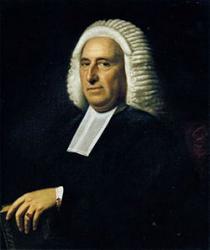
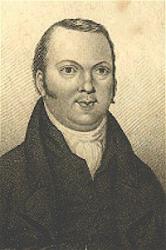
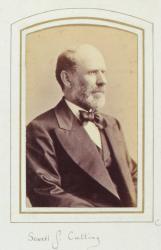
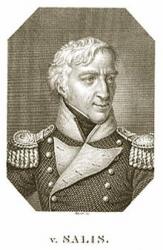
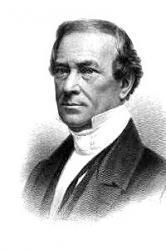
Export as CSV
Christopher Batty
1715 - 1797 Person Name: Beatty Hymnal Number: 663 Author of "Sweet the moments, rich in blessing" in The Baptist Hymn and Tune Book Batty, Christopher, born at Newby Cote, near Settle, Yorkshire, 1715, died April 19, 1797. He was a member of the "Inghamites," a religious denomination located principally in the northern parts of the counties of Lancashire and Yorkshire. He assisted James Allen (q. v.) in the production of the Kendal Hymn Book, 1757, to which he contributed 31 hymns. Very few of these are in common use at the present time. His "Captain of Thine enlisted host" (Missions ), from the Kendal Hymn Book. 1757, is found in Kemble's Collection, 1853, No. 475, and in Spurgeon's 0ur Own Hymn Book, No. 968. He completed his brother's poem, Messiah's Kingdom, which was printed in 1792.
-- John Julian, Dictionary of Hymnology (1907)
Christopher Batty
Mather Byles

1706 - 1788 Person Name: Byles Hymnal Number: 1111 Author of "When wild confusion wrecks the air" in The Baptist Hymn and Tune Book Byles, Mather, D.D., born 1706, educated at Harvard, 1725, died 1788. He was an eminent Congregational Minister of Boston, and, for his time and place, an elegant scholar. He corresponded with, and was well thought of by the English wits and literati. His Toryism brought him into trouble at the Revolution, causing him, in his own words, to be “guarded, reguarded, and disregarded."
His Sermons wore published at various dates from 1729 to 1771, and his Poems in 1727, 1736, and 1744. Of the Appendix to Tate and Brady, published by S. Kneeland in 1760, he edited hymns 77 to 100 inclusive, of which hymns 78, 79, and 80 seem to be his own. Part of No. 78, beginning with st. vii., "When wild confusion wrecks the air," is a Judgment hymn, and has been included in Belknap's Selection, 1795, and later in the Plymouth Collection, 1855, No. 1111, the Baptist Praise Book, 1871, and others. His hymns are unknown to English collections. [Rev. F. M. Bird, M.A.]
-- John Julian, Dictionary of Hymnology (1907)
Mather Byles
Dawson Burns
1828 - 1909 Person Name: Burns Hymnal Number: 1513 Author of "When soon or late we reach the coast" in The Baptist Hymn and Tune Book Burns, Dawson, D.D., b. in 1828, in Southwark, London, is the second son of Dr. Jabez Burns. He entered the ministry among the General Baptists in 1851, nnd for a number of years was his father's colleague at Church Street Chapel, Edgware Road. He is now without pastoral charge, and devotes himself chiefly to literary and public work in connection with the Temperance Reformation. He is the author of several important works on the Temperance question, and of numerous contributions to periodicals and public congresses. In 1884 he published Rays of Sacred Song for the Church and Home. Besides Scripture Studies and other poems, it contains 39 hymns for Public Worship. One of these, "Gladsome we hail this day's return" (Reunion), appeared in 1879 in the Baptist Hymnal, and has been very frequently used on anniversary occasions. Others are of sufficient merit to ensure their adoption as they become known. In 1882 Dr. Burns received the honorary degree of D.D. from Bates College, Maine, U.S. [Rev. W. R. Stevenson, M.A.]
-- John Julian, Dictionary of Hymnology (1907)
Dawson Burns
Joshua Marsden

1777 - 1837 Person Name: Marsden Hymnal Number: 977 Author of "Go, ye messengers of God" in The Baptist Hymn and Tune Book Marsden, Joshua, a Wesleyan Methodist Missionary in Nova Scotia, and afterwards in the Bermuda Islands, born in 1777, and died in 1837. He published Amusements of a Mission, N. Y., 1812, in which a poem on Missions appeared as "Go, ye messengers of God." In his Narrative of a Mission (2nd ed.), 1827, he claims this as his own.
--John Julian, Dictionary of Hymnology, Appendix, Part II (1907)
Joshua Marsden
Ottiwell Heginbotham
1744 - 1768 Person Name: Heginbotham Hymnal Number: 581 Author of "Come, shout aloud the Father's grace" in The Baptist Hymn and Tune Book Heginbothom, Ottiwell, born in 1744, and died in 1768, was for a short time the Minister of a Nonconformist congregation at Sudbury, Suffolk. The political and religious disputes which agitated the congregation, in the origin of which he had no part, and which resulted in a secession and the erection of another chapel, so preyed upon his mind, and affected his health, that his pastorate terminated with his death within three years of his appointment. His earliest hymn, "When sickness shakes the languid corse [frame]," was printed in the Christian Magazine, Feb. 1763. In 1791 the Rev. John Mead Ray communicated several of Heginbothom's hymns to the Protestant Magazine; and in the same year, these and others to the number of 25, were published as:—
Hymns by the late Rev. Ottiwell Heginbothom of Sudbury, Suffolk. Sudbury, Printed by J. Burket, mdccxciv.
These 25 hymns were repeated in J. M Ray's Collection of Hymns from various authors in¬tended as a Supplement to Dr. Watts's Psalms and Hymns, 1799, and 12 in Collyer's Collection, 1812. In modern collections in Great Britain and America the following are in common use in addition to those annotated under their respective first lines:—
1. Blest Jesus, when my soaring thoughts. Jesus, most Precious.
2. Come, humble souls; ye mourners come. Good Hope through Grace.
3. Come saints and shout the Saviour's praise. The Second Advent.
4. Come, shout aloud the Father's grace. Praise to God the Father.
6. Father of mercies, God of love. God the Father.
6. God of our life! Thy various praise. New Year.
7. Great God, let all our [my] tuneful powers. New Year.
8. Hark, the loud trumpet of our God. National Fast.
9. Hark, 'tis your heavenly Father's call. A Prayer to be used by the Young.
10. I ask not [honour] wealth, nor pomp, nor power. Wisdom and Knowledge desired.
11. Now let my soul, eternal King. Praise of the Gospel. Sometimes given as "To Thee, my heart, eternal King."
12. See, mighty God, before Thy throne. Fifth of November; a National Hymn.
13. Sweet peace of Conscience, heavenly guest. A good Conscience.
14. To Thee, my Shepherd, and my Lord. The Good Shepherd.
15. Unhappy city, hadst thou known. Christ weeping over Jerusalem. From this the cento, "And can mine eyes without a tear?" is taken.
16. When sickness shakes the languid corse [frame]. Resignation. Printed in the Christian's Magazine, Feb. 1763, and again in Hymns, &c, 1794.
17. Yes, I will bless Thee, O my God. Praise of the Father. The text is often altered. The cento "My soul shall praise Thee, O my God," in the Unitarian Hymn land Tune] Book, &c, Boston, 1868, is from this hymn.
Most of these hymns are in Collyer's Collection, 1812. There are also 8 in Hatfield's Church Hymn Book, N.Y., 1872, and 7 in the Songs for the Sanctuary, N.Y., 1865. [William T. Brooke]
-- John Julian, Dictionary of Hymnology
Ottiwell Heginbotham
Sewall S. Cutting

1813 - 1882 Person Name: S. S. Cutting Hymnal Number: 1477 Author of "Gracious Saviour, we adore Thee" in The Baptist Hymn and Tune Book Cutting, Sewell Sylvester, D.D., a Baptist Minister, was born at Windsor, Vermont, Jan. 19, 1813, graduated at the University of Vermont, 1835, and was ordained at Boylston, Massachusetts, 1836. He was pastor at Southbridge, Mass., from 1837 to 1845. Editor of the New York Recorder. 1845-50, and 1853-55; and of the Christian Review, 1850-53, and 1855-68. In 1868 he was appointed Professor of Rhetoric and History at the University, Rochester, N. York, and Secretary of the American Baptist Educational Commission. He died at Brooklyn, Feb. 7, 1882. His Historical Vindication of the Baptists was published in 1858.
His hymns in common use include:—
1. Father, we bless the gentle care. The love of God. Appeared in Hymns for the Vestry and Fireside, Boston, 1841.
2. Gracious Saviour, we adore Thee. Holy Baptism. Appeared in Winchell's Additional Hymns, 1832, No. 509 (the author being then but 19); again in the Psalmist, 1843, and others.
3. Great God, Thy glories blaze. Praise to God the Father. Appeared in Linsley and Davis's Select Hymns, 1836-41, No. 514. In the Psalmist, 1843, it was altered to "God of the world, Thy glories shine." This is repeated in several collections, including the Baptist Praise Book, 1871, in 4 stanzas of 4 lines. In the Baptist Service of Song, 1871, it is given as "God of the world, near and afar," is expanded into 5 stanzas, and is dated 1835.
4. 0 Saviour, I am blind, Lead Thou my way. The True Guide. This hymn, in I. D. Sankey's Sacred Songs and Solos, is also by Dr. Cutting. [Rev. F. M. Bird, M.A.]
--John Julian, Dictionary of Hymnology (1907)
Sewall S. Cutting
Johann Gaudenz von Salis-Seewis

1762 - 1834 Person Name: Van Salis Hymnal Number: 1131 Author of "Into the silent land, Ah! who shall lead us thither!" in The Baptist Hymn and Tune Book Salis-Seewis, Johann Gaudenz, Baron von, was born Dec. 26, 1762, at the castle of Bodmer (Bothmar), near Malans, Grisons, Switzerland. From 1779 to 1792 he was an officer in the French army; and after 1798 he held various offices connected with the Swiss Militia, and with his native canton. He died at Bodmer, Jan. 29, 1834, and was buried at Seewis, near Malans (Allg. Deutsche Biog., xxx., 245, &c). His Poems appeared as his Gedichte at Zurich, 1793; 2nd ed., 1794; 3rd, 1797; 4th, 1800; 4th enlarged ed., 1803; new ed., 1808 [all in Berlin Library], and many later eds. The most famous of his poems is "Das Grab ist tief und stille" (in his Gedichte, 1793, p. 35, entitled "The Grave, 1783"), of which there are at least 7 translations into English. The only one in English common use as a hymn is:—
Ins stille Land! Wer leitet uns hinüber. For the Dying. 1st published in his Gedichte, Neue Auflage, Zürich, 1808, p. 146, in 3 stanzas of 7 lines, each ending "Ins stille Land." In his Gedichte, Cologne, 1815, p. 134. The translation in common use is:—
Into the Silent Land! Ah! who shall lead us thither. In full by H. W. Longfellow in his Voices of the Night, Cambridge, U. S., 1840, p. 141, repeated in the later eds. of his Poetical Works. Included in Hedge and Huntington's Hymnsfor the Church of Christ, 1853, and many later American collections. It has been retranslated into Greek verse by Dr. B. H. Kennedy, in his Between Whiles, 1877. There are at least three other versions in English. [Rev. James Mearns, M.A.]
--John Julian, Dictionary of Hymnology, Appendix, Part II (1907)
Johann Gaudenz von Salis-Seewis
George B. Ide
1804 - 1872 Person Name: G. B. Ide Hymnal Number: 1487 Author of "Son of God, our glorious Head!" in The Baptist Hymn and Tune Book Ide, George Barton, D.D., Baptist Minister, was born at Coventry, Vermont, in 1806; educated at Middlebury College, Vermont; was pastor successively at Boston, Philadelphia, and Springfield, Massachusetts, and died in 1872. He edited the Baptist Harp, Philadelphia, 1849. To that work he contributed 9 hymns. Of these, "Son of God, our glorious Head" (On behalf of ministers) is still in common use.
--John Julian, Dictionary of Hymnology (1907)
==========================
Ide, George Barton, D.D., p. 561, i. Dr. Burrage gives in his Baptist Hymn Writers, 1888, p. 308, a list of Dr. Ide's hymns, and states that he was born Sep. 17, 1804. This date must be substituted for 1806 on p. 561, i.
--John Julian, Dictionary of Hymnology, Appendix, Part II (1907)
George B. Ide
N. L. Frothingham

1793 - 1870 Person Name: Frothingham Hymnal Number: 437 Author of "Our Christ hath reached His heavenly seat" in The Baptist Hymn and Tune Book Frothingham, Nathaniel Langdon, D.D., born at Boston July 23rd, 1793, and graduated at Harvard 1811, where he was also sometime Tutor. From 1815 to 1850 he was Pastor of the First Church (Unitarian), Boston, and subsequently attended as a worshipper the church where he had been 35 years minister till his sight and strength failed him. He died April 4th, 1870.
His Metrical Pieces, in 2 volumes, were published in 1855 and 1870.
1. O God, Whose presence glows in all. Ordination. This was written in 1828 for the ordination of W. B. Lunt, New York.
2. We meditate the day . Installation. Written in 1835 for Mr. Lunt's installation at Quincy, Mass., as Co-pastor with Peter Whitney.
3. O Lord of life and truth and grace . Ordination. Also a special hymn. It was composed for the ordination of H. W. Bellowes, New York, 1839. It is found in common with Nos. 1 and 2 in Frothingham's Metrical Pieces, 1855. These Metrical Pieces are unknown to the English Collections. [Rev. F. M. Bird, M.A.]
--John Julian, Dictionary of Hymnology (1907)
================
Frothingham, N. L. , p. 400, ii. Other hymns are:—
1. O Saviour, Whose immortal word. Opening of a Place of Worship. Written "For the Dedication of the Church of the Saviour, Boston, November 16, 1847."
2. Remember Me, the Saviour said. Holy Communion.
3. They passed away from sight. Death and Burial.
4. When I am weak, I'm strong. Spiritual Strength. Nos. l, 2, and 4 are from his Metrical Pieces, Translated and Original, 1855,
--John Julian, Dictionary of Hymnology, Appendix, Part II (1907)
N. L. Frothingham
Joseph Swain
1723 - 1792 Person Name: Swain Hymnal Number: 614 Author of "I stand on Zion's mount" in The Baptist Hymn and Tune Book Joseph Swain born in 1723 in Reading, Mass, graduated at Harvard College in 1744; was schoolmaster at Reading in 1746; was ordained as pastor of the Congregationalist Church at Wenham, Mass in 1750. He was the author of several hymns. He was pastor of his church for forty-two years, until he died June 27, 1792.
Swain and allied families, compiled by William C. Swain, Milwaukee,Wis: Press of Swain & Tate Company, 1896
Joseph Swain


 My Starred Hymns
My Starred Hymns


